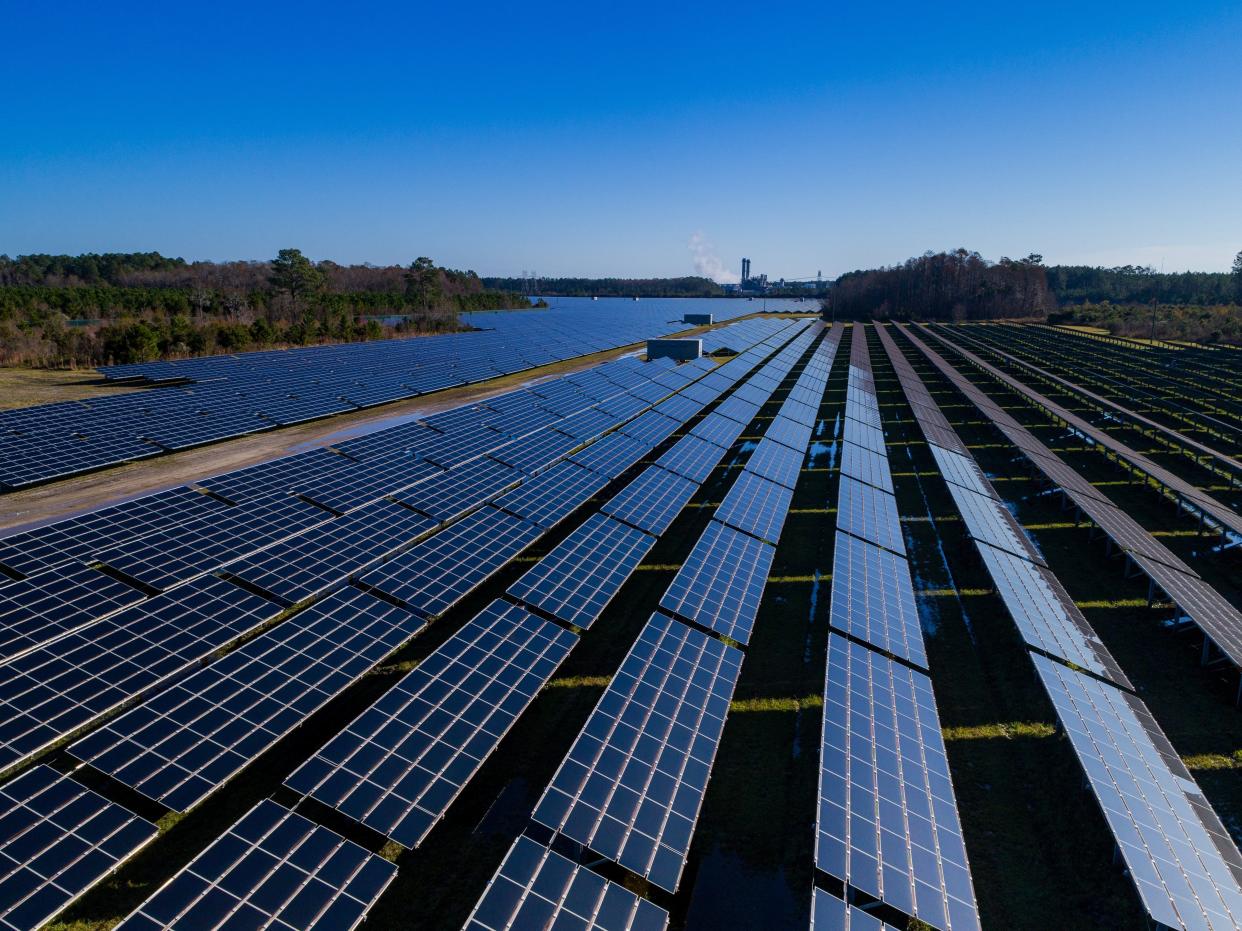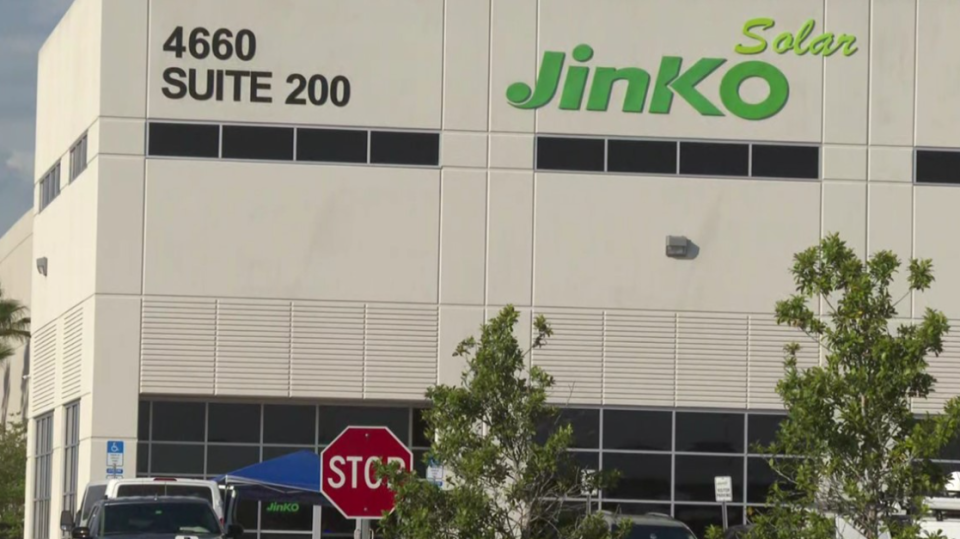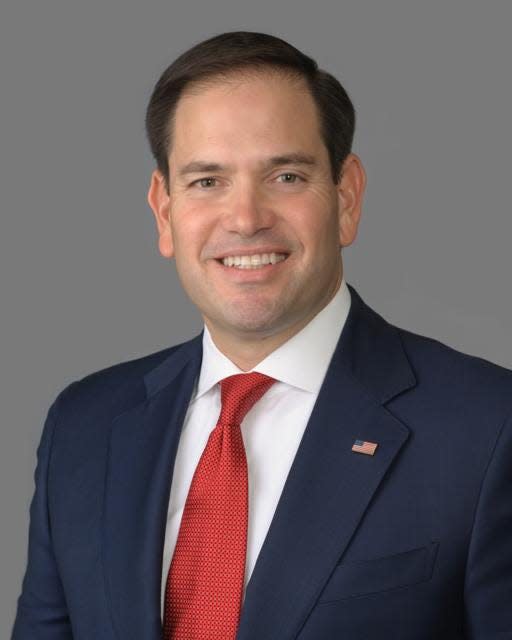Sen. Rubio: Jacksonville raid a sign the U.S. must decouple from Chinese solar

Two months ago the Department of Homeland Security raided a facility right here in Jacksonville. This was no routine visit but reportedly involved 100 federal agents and a helicopter. The target? Not drug dealers or thieves, but a manufacturer of solar panels.
We don’t know for sure what Homeland Security was looking for, but there is every reason to think the company in question — Chinese-owned JinkoSolar — may have violated U.S. customs laws.
Like most of the world’s solar panel companies, JinkoSolar previously relied on polysilicon from the Xinjiang Uyghur Autonomous Region (though it's unclear if they still do). This is where the Chinese Communist Party subjects Uyghurs and other predominantly Muslim ethnic groups to forced labor, as well as systemic rape, sterilization and indoctrination.
More: JinkoSolar says expansion still happening despite Jacksonville holding off on tax rebates
Sierra Club: JEA plan impractical, doesn’t do enough to reduce dependence on fossil fuels
Letters: Possible development among ongoing critical issues for Cumberland Island
Importing slave-made goods is illegal under a 1930 trade law but enforcing this ban on Uyghur-linked solar panels has proved impossible because Beijing would not allow third-party entities to verify supply chains. Companies could claim ignorance and import goods tainted with slave labor.
That changed when President Joe Biden signed my Uyghur Forced Labor Prevention Act in 2021. This law shifted the burden of proof from the government to the importer. Now companies must definitively show that slave labor is not embedded in their supply chains linked to Uyghur.
The bill marks the biggest change in America’s trade relationship with China in decades. Unfortunately, it hasn’t stopped companies from trying to cheat the system. Their strategies range from falsifying supply chain data to dividing up shipments to bring imports below the $800 de minimis threshold for customs inspection.

The federal investigation of JinkoSolar is a welcome and long-overdue step toward cracking down on these companies. I’m also encouraged by the fact that Jacksonville’s city council repudiated $2.3 million in tax rebates intended for JinkoSolar’s profit.
But on the whole, our government is doing far too little to keep slave-made goods from entering the country. In many ways, the Biden Administration is making things worse.
Take Democrats’ Inflation Reduction Act, for example. Not only has this boondoggle done virtually nothing to reduce inflation, but it has also approved hundreds of billions of taxpayer dollars for investment in Chinese solar panel manufacturers — including JinkoSolar — which profit from slave labor.
President Biden also turned a blind eye to Chinese companies attempting to avoid Trump-era tariffs by shipping solar products through the Southeast Asian region. He did so despite his own Commerce Department’s finding that in doing so, those companies violate the law. Congressional Democrats and Republicans disagreed with this move to protect illegal trade activity, going so far as to pass a resolution to cancel it. Unfortunately, the president vetoed our bill.
Fast, but not fabulous: Hazardous waste, child labor and other costs of ‘fast fashion'
Finally, the Biden Administration has been far from transparent in its enforcement of the Uyghur Forced Labor Prevention Act. Some of its decisions, including the approval of nearly 300 questionable shipments from the Uyghur region based on their importers’ good word, are suspicious and potentially outright negligent.
The motive for all this is obvious. President Biden pledged to “end fossil fuels” to please climate activists and “green” energy lobbyists who staff and fund the Democrat Party. To make good on his promise, he is willing to send taxpayer dollars to China and even subsidize Uyghur slavery.
In a perverse way, the logic is understandable. Democrats like John Kerry believe Earth’s changing climate is the greatest threat to humanity, and they believe solar panels are key to eliminating that threat. Take that for what you will, but working with the genocidal regime in Beijing is reprehensible, not to mention hypocritical.
How can the president support human rights when he hesitates to enforce the bill preventing forced labor? How can he pursue “strategic competition” with Beijing when his policies solidify the regime’s grip on key international supply chains? How can he tout the IRA as a job-building program when its greatest impact is to strengthen Chinese companies? And how can he counteract a changing climate when he relies on polysilicon produced in dirty, coal-fired power plants?
The answer is that he can’t, at least not in good faith. To honor our sacred values, uphold the law and advance the national interest, President Biden must lead the U.S. in decoupling from Chinese solar. If opposing slavery means a slower “green” transition, it’s a small price to pay.

Marco Rubio (R-FL) currently serves as vice-chairman of the U.S. Senate Select Committee on Intelligence and chair of the Small Business Committee.
This guest column is the opinion of the author and does not necessarily represent the views of the Times-Union. We welcome a diversity of opinions.
This article originally appeared on Florida Times-Union: U.S. must do more to enforce laws against companies using slave labor

